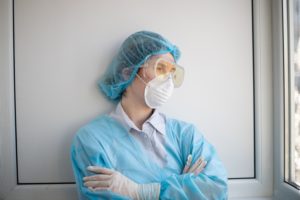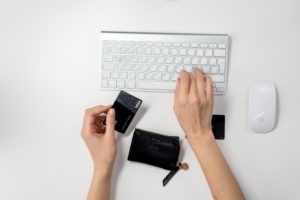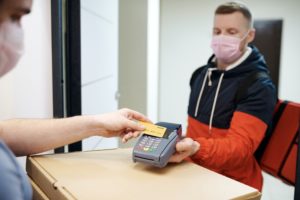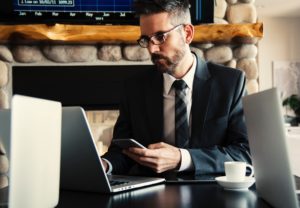Items That Supposedly Protect From Coronavirus May Not Work
Unfortunately, the COVID-19 pandemic has inspired many businesses to market defective products with false claims. A brand protection software provider found a 272% growth in listings of fake hygiene-related products on e-commerce marketplaces such as Amazon, eBay and Wish in the first quarter of 2020. Although websites such as Amazon have cracked down on fraud, there are still defective safety products aimed at fighting COVID-19 being sold online.
Reasons Why Products May Be Ineffective or Harmful
There are several reasons why fake or defective products may be available to buy. Amazon has put policies in place, and such items as fake testing kits have been eliminated, but vendors are still selling shoddy products with questionable claims. Some reasons include the following:
- Third-party sellers have less oversight.
- Restrictions have been lifted.
- There is no way to know if the product is effective.
- Fake reviews give the impression of legitimacy.

Although they are supposed to meet CDC guidelines, many products found online do not. It is in your favor to be skeptical when buying online.
Some Examples of Coronavirus-Related Defective Products
When shopping through online platforms, be on the lookout for defective products that fall in any of the following categories:
- Medical supplies: When it comes to medical supplies, be sure you’re buying new products. Some refurbished or previously opened supplies are marketed as new.
- Masks and face shields: Many masks and shields claim to be more effective than they really are. They often fool buyers with fake reviews.
- Counterfeit or ineffective sanitizers: Bogus sanitizers may be ineffective at best. Not meeting CDC guidelines is one problem; the fact that consumers think that they are sanitizing may put them at risk without their knowledge.
- UV sanitizer lights: Cheap and underpowered UV lights are common. Beware of any product with a price that seems too good to be true.
- Vitamins and supplements: Avoid any vitamins that claim to prevent or cure coronavirus.
- Informational books and pamphlets: Informational books may just be copied from places online and not provide any new or useful information, so be careful when ordering these items.
When a person purchases a product that they think will protect them and the product then does not, they are putting themselves and others at risk. Your first line of defense against bogus products is your own common sense.
Spot Suspicious Listings
Buying online calls for a bit of detective work. There are questions to ask yourself when reading listings. You should avoid any listings that claim to cure coronavirus. Here are some more tips:
- Examine the photos.
- Watch where products are shipped from.
- Check seller ratings.
- Double check the URL of the listing.
- Be careful of new sellers.
Some listings, to avoid backlash regarding products from Asia, may say “shipped from the USA” or “based in the USA.” However, this misleads many into thinking the product was made in the U.S. Check the seller rating as well as the product reviews. A poor seller rating is a red flag.
New sellers, especially those who usually sell in other categories, should be avoided when buying anti-coronavirus safety products. It is somewhat suspicious when a vendor that usually sells women’s clothing suddenly sells UV lights or vitamins to protect against COVID-19.
Unfortunately, many businesses do a good job of masking their fraudulent items. The office of Gregg Wisotsky has seen too many unsafe products during the COVID-19 crisis. Your Morristown personal injury lawyer wants you to be aware that some people are selling products to take advantage of the pandemic and make a fast buck. Even reasonable use of a harmful or shoddy product can cause safety issues.
Contact Us to Learn More About Defective Product Lawsuits
If you think you may be the victim of a COVID-19 scam that has affected your health, consider taking legal action. You may be able to recover damages by filing a personal injury lawsuit. Give us a call at (973) 898-0161. We invite you to more about your Morristown personal injury lawyer, Gregg Wisotsky, and our New Jersey offices. Let’s answer your questions and discuss your case.



 There are several types of credit card fraud that you could be committing without realizing it, especially while money is tight during lockdown. If you apply for a new credit card to help while income is limited, for example, but lie on the application, there’s the potential for a fraud charge. You could also face charges for using someone else’s credit card without permission or using someone’s credit card after they have passed away.
There are several types of credit card fraud that you could be committing without realizing it, especially while money is tight during lockdown. If you apply for a new credit card to help while income is limited, for example, but lie on the application, there’s the potential for a fraud charge. You could also face charges for using someone else’s credit card without permission or using someone’s credit card after they have passed away. However, while your eligibility for workers’ compensation when you contracted coronavirus at work is not in doubt, what is more difficult is proving that you contracted COVID-19 while on the job. One of the requirements to be eligible for benefits is that it must be a work-related injury. This means that it must occur when you are on the job.
However, while your eligibility for workers’ compensation when you contracted coronavirus at work is not in doubt, what is more difficult is proving that you contracted COVID-19 while on the job. One of the requirements to be eligible for benefits is that it must be a work-related injury. This means that it must occur when you are on the job. Even when court trials resume, the physical dynamics of the jury will present some challenges for juries. We have all seen court trials on television to observe how close to each other jurors sit during a case. Even when court hearings begin again, that type of physical proximity will still be difficult. Jurors will need to socially distance for quite some time, perhaps until there is a COVID-19 vaccine.
Even when court trials resume, the physical dynamics of the jury will present some challenges for juries. We have all seen court trials on television to observe how close to each other jurors sit during a case. Even when court hearings begin again, that type of physical proximity will still be difficult. Jurors will need to socially distance for quite some time, perhaps until there is a COVID-19 vaccine.








